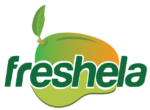
The cashew nuts business in Switzerland is intricately connected to global market dynamics, and prices are influenced by a myriad of factors. Importers and market players navigate this complex landscape, considering international trends, quality parameters, and consumer preferences to ensure a stable supply of cashew nuts at competitive prices. Switzerland, known for its discerning consumer base and commitment to quality, has become a significant player in the global cashew nuts market. This report aims to delve into the intricacies of the cashew nuts business in Switzerland, with a particular focus on price dynamics, market trends, and the factors influencing cashew prices.
Cashew Nuts Price Factors In Switzerland
Factors Influencing Cashew Prices:
- Global Supply and Demand: Fluctuations in global cashew production can directly impact prices. Factors such as adverse weather conditions, diseases affecting cashew crops, and changes in cultivation patterns contribute to variations in supply and, consequently, prices.
- Exchange Rates: As an importing nation, Switzerland is sensitive to changes in exchange rates. Currency fluctuations can influence the cost of imported goods, including cashew nuts, and impact the final retail prices.
- Quality and Grade: The quality and grade of cashew nuts significantly affect their prices. Higher-grade cashews command premium prices due to their perceived superior taste and appearance.
- Processing Costs: The processing and packaging of cashews incur additional costs that contribute to the overall price. Efficient processing methods and economies of scale can influence the final price of cashew nuts in the Swiss market.
Import Value Line Chart

Cashew Nuts Market Overview In Switzerland
The cost of cashew nuts is also affected by the quality of the product. Higher grades of cashews, such as W240 or W320, often command premium prices due to their larger size and superior taste. The grading system, based on kernel count per pound, plays a crucial role in determining the value of cashew nuts in the Swiss market.
Market Trends and Consumer Preferences:
The Swiss market for cashew nuts reflects broader trends in consumer preferences. There is a growing demand for organic, sustainably sourced, and ethically produced cashews. Consumers are willing to pay a premium for products that align with their values, and this trend has prompted market players to explore and invest in sustainable and transparent supply chains.
Cashew Nuts Price Quotes In Switzerland
In 2023, the average price of imported cashews in Switzerland was approximately $5.50 per kilogram. This figure takes into account variations in grades, quality, and source countries such as Vietnam, India, Ivory Coast, and Brazil. It’s worth noting that these prices are subject to change based on market conditions, and importers closely monitor these fluctuations to make strategic business decisions.The international market heavily impacts cashew prices, with fluctuations in production, weather conditions, and geopolitical events contributing to price volatility. Importers in Switzerland closely monitor these global factors to anticipate changes in cashew prices and make informed purchasing decisions.
Future Prospects and Opportunities
Despite challenges such as disruptions in the global supply chain and geopolitical tensions,the Swiss market for cashew nuts reflects broader trends in consumer preferences. Moreso,there is a growing demand for organic, sustainably sourced, and ethically produced cashews.
Conclusion
As the market continues to evolve, staying attuned to these price dynamics will be crucial for businesses aiming to thrive in the Swiss cashew nuts industry.Importers in Switzerland closely monitor global factors to anticipate changes in cashew prices and make informed purchasing decisions.
